“The history of mankind as a whole is tragic. But the sacrilege and the catastrophe of the Faustian are greater than all others, greater than anything Æschylus or Shakespeare ever imagined. The creature is rising up against its creator. As once the microcosm Man against Nature, so now the microcosm Machine is revolting against Nordic Man. The lord of the World is becoming the slave of the Machine, which is forcing him — forcing us all, whether we are aware of it or not — to follow its course. The victor, crashed, is dragged to death by the team.”
— Oswald Spengler, Man and Technics
 The unique characteristics of Faustian civilization, as Spengler described it, are now leading Europe to destruction. The Faustian is characterized by a drive towards the infinite, a will to break through the boundaries that limit man, whether they be intellectual or physical. Spengler calls the prime symbol of the Faustian soul “limitless space.”[1] Like Goethe’s Faust, Faustian civilization seeks infinite knowledge.
The unique characteristics of Faustian civilization, as Spengler described it, are now leading Europe to destruction. The Faustian is characterized by a drive towards the infinite, a will to break through the boundaries that limit man, whether they be intellectual or physical. Spengler calls the prime symbol of the Faustian soul “limitless space.”[1] Like Goethe’s Faust, Faustian civilization seeks infinite knowledge.
However, as this civilization declines, limitless space becomes an all-consuming maw that threatens the survival of all traditions, the all-encompassing extension of the Faustian soul ensnaring all the peoples of the world in its decline. Faustian man, detached from the earth, is on course to share the fate of Icarus. The fruits of the Faustian mind — rationalism, universalism, liberalism, industrialism, and globalization — threaten identity and heritage on a global scale.
While it is true that all civilizations, no matter what their particulars are, are bound to die as all living organisms are bound to die, the unique characteristics of the Faustian decline are uniquely disastrous. Whereas the ethnic Romans and Persians survived the collapse of the Roman and Persian empires, Western man’s dying civilization threatens to physically eliminate him, while also spreading the contagion of liberalism to non-Western cultures.
The Faustian tendency to break down barriers has transmogrified into the toxic global homogenization of cultures and peoples in the waning stages of Western civilization, that enables foreign and internal threats to multiply. The Faustian mindset must be discarded if Western Europeans and their descendants ever hope to create another great civilization in the ruins of this one.
One of the root causes of the current situation is universalism, which does not respect the particular qualities of an ethnos. The Faustian concept of space necessitates universalism. We may take the Faustian embrace monotheism as a starting point for this tendency. As Spengler wrote, “The plurality of separate bodies which represents Cosmos for the Classical soul, requires a similar pantheon — hence the antique polytheism. The single world-volume, be it conceived as cavern or as space, demands the single god of Magian or Western Christianity.”[2] Instead of separate moral universes, the Faustian worldview accepts only one.
While this monotheistic worldview is not unique to Faustian civilization, the Magian soul’s cavern infers a certain limit to its sovereignty, as we see in Islamic theology, where the world is divided separate houses, one of which is the house of Islam, Dar al-Islam. The unbounded space of the Faustian soul merges seamlessly into the Hebrew Bible’s conception of space. In On Being A Pagan, Alain de Benoist characterizes the latter, “The universe is thus conceived in the Bible as a world with no spatial boundaries.”[3]
National borders, borders between religions, between ethnic groups, are erased in the Faustian mind, indeed no group has embraced biblical universalism to the extent that Faustian civilization has. No other civilization has ranged so far and so wide in their efforts to impose their morality upon the entirety of the world. Even the most ferocious of the Islamic expansions, including the Salafist trends of our day, pale in comparison to the sustained attempt of the West to convert the rest of the globe. We see these efforts in the Crusades of the Teutonic Knights against the pagan Balts, the Swedes waging war on the Orthodox Slavs of Novgorod, the Spaniards’ attempts to convert the Indian populations of the Americas, the civilizing mission of the British Empire, and into this day and age with America’s global War on Terror.
While some men may look upon these events as great triumphs of Western Civilization, they are really milestones in a trend of globalization reaching its pinnacle now. Faustian civilization, in many ways like the most Salafist strains of Islam, sees the need to impose a single moral vision upon the world, whether it be a colonial nation’s particular strain of Christianity, or liberal democracy.
Under Roman rule, different customs and beliefs could coexist within certain moral boundaries, a cosmos of separate moral planets. In contrast, the Faustian man believes that his particular morality extends to the ends of the earth. Hence Kant’s dictum, “Act only according to that maxim whereby you can at the same time will that it should become a universal law without contradiction.”
Thus international organizations and courts trample upon the sovereignty of peoples. The particulars of a man himself are stripped away, he is no longer German, an English, or Chinese, he is “man,” in the abstract. Any attempts to resists this alleged universal morality common to mankind are deemed criminal. Those who do not fall into line are primitives, heretics, or, to use more modern parlance, rogue states.
On the opposite end, the Faustian civilization is rendered rootless. There is nothing that could stand in the way of limitless space for there is no law without a universal character according to him. There can no longer be different standards of morality for different classes, genders, or any other social division. No longer is there a way of action and a way of contemplation, a way of kings and a way of priests, a way of men and a way of women, there is simply a universal way. Faustian civilization turned towards egalitarianism.
Political liberalism can be seen as the extension of a certain Anglo-Saxon mindset that grew under Christianity. Alain de Benoist states in The Problem of Democracy, “liberal democracies are rooted not so much in the spirit of ancient democracy as in Christian individualism, the rationalism of the Enlightenment, and the Anglo-Saxon Protestant spirit. In these democracies, the ‘citizen’ is not he who inhabits a history and a destiny through his belonging to a given people, but a rather an abstract, atemporal, and universal being, which regardless of any belonging, is the holder of ‘human rights’ decreed to be unalienable.”[4] Hence, politics ceased to be defined by the conditions of the polis itself. In the democracies of Ancient Greece, political freedoms were derived from being a member of a specific community, generally that which one was born into from autochthonous stock. In contrast to Classical civilization, Faustian civilization invented the universal rights of man, which appear to guarantee freedom from the bonds of community. Once again the theme of the replacement of the particular by the universal is evident. The rooted pillar of classical civilization is replaced by the infinite field of the Faustian.
The rootless political existence develops into rootless personal existence. The Faustian tendency towards uprooted modes of existence finds expression in postmodern philosophy. The boundless space of Faustian man is the home of the rhizome of Deleuze and Guattari, “It has neither beginning nor end.” The rhizome shares with Faustian physics a focus on motion and dynamics as opposed to discrete static objects, “It is composed not of units but of dimensions, or rather directions in motion.” Compare this with the Faustian focus on force, “There is no Western statics — that is, no interpretation of mechanical facts that is natural to the Western spirit bases itself on the ideas of form and substance, or even, for that matter, on the ideas of space and mass otherwise than in connexion with those of time and force.”[5] In both cases, the focus on actual substance, being, is reduced.
The criticism of being in their seminal text A Thousand Plateaus, displays certain Faustian characteristics as well. Here the rhizome is contrasted with the tree. Once again the symbol of rootedness is attacked by Faustian thought, with its additive and expansive qualities. “The tree imposes the verb ‘to be’, but the fabric of the rhizome is the conjunction, ‘and…and…and…’. This conjunction carries enough force to shake and uproot the verb ‘to be’.”

The contrast between the dynamic and the static becomes open conflict in the postmodernity of declining Faustian civilization where its expansiveness becomes full deterritorialization. What seems like abstract philosophy has a very real presence in the world. In the nomadic lifestyles imposed by many careers, where relocation across the face of the globe has become normal, in the fluid identities and fragmented subcultures of American youth, in global electronic networks, in globalization’s erosion of local economies, the rhizome dominates. Faustian dynamism and limitlessness has resulted in a world of scattered and broken spirits.
Due to the inherently limited nature of the physical world, the Faustian mind tends toward abstraction. Spengler’s discussion of the different conceptions of mathematics in instructive in this instance. “The beginning and end of the Classical mathematic is consideration of the properties of individual bodies and their boundary-surfaces; thus indirectly taking in conic sections and higher curves. We, on the other hand, at bottom know only the abstract space-element of the point, which can neither be seen, nor measured, nor yet named, but represents simply a centre of reference. The straight line, for the Greeks a measurable edge, is for us an infinite continuum of points.”[6] Classical mathematics is rooted in physical reality. It focuses on measurable quantities and physical shapes and surfaces. In contrast, Faustian mathematics is not constrained by what humans can touch, measure, or observe. We cannot count an infinite number of objects, nor have i (the square root of -1) of them, yet these concepts are integral to our mathematical system.
This retreat into the mind exacerbates the conflict between the physical and the intellectual. Instead of balance between mind and body, the Faustian mind gravitates towards logocentrism, a term most would associate with Derrida, but was coined by Conservative Revolutionary philosopher Ludwig Klages in his work The Intellect As Antagonist of the Soul.[7]
This movement towards the mental abstraction moves man away from the instinctive, the vital. Thus the Faustian tendency towards starry eyed idealism. Otto Reche speaks of “the powerfully rousing and simultaneously tragic song about the Nordic race and its idealism.”[8] At its worst it becomes a world denying tendency. Instead of experiencing the world in its mystery and majesty, we reduce it to what D. H. Lawrence termed a “thought form” a construct of abstract laws and facts existing only in our minds. As he says in “Introduction to the Dragon,”
. . . our sun and our moon are only thought-forms to us, balls of gas, dead globes of extinct volcanoes, things we know but never feel by experience. By experience, we should feel the sun as the savages feel him, we should ‘know’ him as the Chaldeans knew him, in a terrific embrace. But our experience of the sun is dead, we are cut off. All we have now is the thought -form of the sun. He is a blazing ball of gas, he has spots occasionally, from some sort of indigestion, and he makes you brown and healthy if you let him.[9]
Nietzsche correctly identified the retreat into the world of reason as a symptom of weakness. He states in the essay “Reason in Philosophy” from Twilight of the Idols, “To divide the world into a ‘real’ and ‘apparent’ world … is only a suggestion of decadence – symptom of declining life.” It is no great surprise that the West has wholeheartedly endorsed the Enlightenment program of rationalism, and its political emanation, liberalism. While rationalism is the mark of all declining civilizations throughout history, it aligns most intensely with the Faustian, whose affinity for abstraction was present at its birth. Indeed, we see in no other civilization an ideology like Enlightenment liberalism. Liberalism is a uniquely Western illness emerging from the Faustian decline.
 Related to the Faustian tendency towards abstraction is the technical sophistication of Faustian civilization. Inventions spring from the unbounded Faustian mind. From the tools of abstract mathematics Faustian man has constructed the most precise and powerful theories of physical forces known to man. The combination of unlimited thought and dynamism enabled never before seen technological breakthroughs.
Related to the Faustian tendency towards abstraction is the technical sophistication of Faustian civilization. Inventions spring from the unbounded Faustian mind. From the tools of abstract mathematics Faustian man has constructed the most precise and powerful theories of physical forces known to man. The combination of unlimited thought and dynamism enabled never before seen technological breakthroughs.
Indeed, not content with being in the world, Faustian man sought to create an artificial paradise. Spengler characterizes this attitude in Man and Technics “To build a world oneself, to be oneself God — that is the Faustian inventor’s dream, and from it has sprung all our designing and re-designing of machines to approximate as nearly as possible to the unattainable limit of perpetual motion.”
Spengler was keenly aware of the consequences of this mechanical world. In industrial societies the rise of alienation is seen, “And now, since the eighteenth century, innumerable ‘hands’ work at things of which the real role in life (even as affecting themselves) is entirely unknown to them and in the creation of which, therefore, they have inwardly no share. A spiritual barrenness sets in and spreads, a chilling uniformity without height or depth.”
No longer is the producer a traditional craftsman who handles the creation of goods from start to finish. He is merely performing one action of many required for the assembly of an object. The laborer’s dignity is diminished on the factory floor. This in turn breeds social conflict between the laborers and the managerial class. “The tension between work of leadership and work of execution has reached the level of a catastrophe. The importance of the former, the economic value of every real personality in it, has become so great that it is invisible and incomprehensible to the majority of the underlings. In the latter, the work of the hands, the individual is now entirely without significance.”
In addition to the social consequences, there are irreversible and wide-ranging ecological consequences. The depletion of natural resources, the elimination of species, the poisoning of our food, and water supplies, anthropogenic climate change. It is not alarmist to state that technology threatens life on earth. Spengler noted in 1931, “All things organic are dying in the grip of organization. An artificial world is permeating and poisoning the natural.”
In addition to the existential threat posed by technology, it greatly enhances the foreign threats against Faustian civilization. The expansive nature of Faustian man to spread to all the corners of the map, is mimicked by his technology. In the quest for ever greater profits and power, industry has spread all over the world. We may think this to be a late 20th-century problem linked with globalization, but it was already in motion in Spengler’s time, with Japan emerging as an industrial power in Asia. It has only increased in our time, with the outsourcing of industry and the spread of advanced weaponry to peoples who could not have possibly invented them. Global industrialization simultaneously has strengthened the power of non-Western peoples, while sapping the strength of the native working class in the West. Faustian technology, operating hand-in-hand with the forces of capital, has enabled the mass movement of foreign peoples into formerly homogeneous nations. While mass immigration has no one single cause, it is effectively, to use Alain de Benoist’s notable turn of phrase, “the reserve army of capital.” In his essay of the same title, Benoist notes how the French construction and automobile industries deployed trucks in the Maghreb to recruit immigrant labor. While it is true that other civilizations have imported foreign labor, only the late Faustian civilization has done it on such a scale as to threaten the survival of their national ethnic integrity. The combination of borderless thought and high technology now threatens the survival of the very people who dreamed up such ideas, as the threat of Europeans becoming minorities in their own homelands grows.
Perhaps a stronger descriptor than Faustian for the civilization that is our subject would be Titanic. Titanic in the sense of the Italian Traditionalist philosopher Julius Evola, who uses the term Titanism to refer to a particular type of usurpation of divine power. It accentuates the Faustian revolt against the divine order. Evola characterizes the Titanic civilization as such:
The first type of civilization is the Titanic one, in a negative sense, and refers to the spirit of a materialistic and violent race that no longer recognized the authority of the spiritual principle corresponding to the priestly symbol or to the spiritually feminine “brother” (e.g., Cain vs. Abel); this race affirmed itself and attempted to take possession, by surprise and through an inferior type of employment, of a body of knowledge that granted control over certain invisible powers inherent to things and people. Therefore, this represented an upheaval and a counterfeit of what could have been the privilege of the previous “glorious men,” namely, of the virile spirituality connected to the function of order and of domination “from above.” It was Prometheus who usurped the heavenly fire in favor of the human races, and yet he did not know how to carry it; thus the fire became his source of torment and damnation.[10]
Faustian man, like Prometheus, has stolen fire from the gods, reordering nature to suit his purpose. The Faustian man revolted against nature, as Spengler notes, “The creature is rising up against its creator. As once the microcosm Man against Nature, so now the microcosm Machine is revolting against Nordic Man.”
The expansive Faustian mind seeks to eliminate the barriers imposed by nature itself. Hegel characterizes it as thus, “The principle of the European mind is self-conscious reason which is confident that for it there can be no insuperable barrier and which therefore takes an interest in everything in order to become present to itself therein.” What we see is the drive of Faustian science to “know the mind of God,” which English physicist Stephen Hawking equated with “the ultimate triumph of human reason.” And if it is uncovered perhaps it will do more harm than good. The Spenglerian horror writer H. P. Lovecraft states prophetically in his story “The Call of Cthulhu”:
We live on a placid island of ignorance in the midst of black seas of infinity, and it was not meant that we should voyage far. The sciences, each straining in its own direction, have hitherto harmed us little; but some day the piecing together of dissociated knowledge will open up such terrifying vistas of reality, and of our frightful position therein, that we shall either go mad from the revelation or flee from the deadly light into the peace and safety of a new dark age.
The ecological devastation and social chaos sown by the scientific advances of Western civilization seem to validate Lovecraft. However, the Promethean narrative offers a glimmer of hope, a way out. The hero Heracles, son of the Olympian Zeus, frees Prometheus from his torture. Evola states that Heroism, as represented by Heracles in the Titanic cycle, is “the restoration of the Olympian solar spirituality and overcoming of both the Mother and Titan figures.” Considered from the spiritual position of Tradition, the overcoming of Titanic Faustian civilization is possible. However, let us not forget the role of man in fulfilling destiny and let us recognize the need for a new spirit to transcend our declining civilization before it destroys us.
This restoration need not be a return to the “dark ages” of obscurantism. Indeed oriented in the proper direction, the traits we associate with Faustian civilization, such as constant self-overcoming, intrepidity, rising to challenges, are tools for spiritual growth that predate Faustian civilization. From a Traditional viewpoint, they predate humanity itself, they are transcendent, beyond space and time. Evola’s “esoteric reading” of Nietzsche makes this clear:
The cutting of all bonds, the intolerance of all limits, the pure and incoercible impulse to overcome without any determined goal, to always move on beyond any given state, experience, or idea, and naturally and even more beyond any human attachment to a given person, fearing neither contradictions nor destructions, thus pure movement, with all that that implies of dis- solution — “advancing with a devouring fire that leaves nothing behind itself,” to use an expression from an ancient wisdom tradition, though it applies to a very different context — these essential characteristics that some have already recognized in Nietzsche can be explained precisely as so many forms in which the transcendent acts and manifests.[11]
However, these tendencies need to be directed vertically, towards transcendence, not horizontally in the realm of sheer materialism, not manifesting in the need to dominate the world’s physical being. Evola attributes Nietzsche’s mental collapse to the fact that his energy remained on a non-transcendent level, burning him out like a circuit whose current is too strong. Continuing with the contrast between the horizontal plane of life, and the vertical axis of “more than life,” in the sense of George Simmel’s “more than living” (mehrs als leben), we can envision two symbols, the ocean, and the mountain. The divine order stands with the mountain, whereas Faustian Titanism is the realm of the ocean. Western man is faced with a choice. He can conquer himself and ascend the peaks of the spirit, or he conquer the world and disappear past the water’s horizon.
Notes
1. Oswald Spengler, The Decline of the West, vol. 1, Form and Actuality, trans. Charles Francis Atkins (New York: Knopf, 1926), p. 337.
2. Ibid. p. 187.
3. Alain de Benoist, On Being a Pagan, trans. Jon Graham, ed. Greg Johnson (Atlanta: Ultra, 2004), p. 84.
4. Alain de Benoist, The Problem of Democracy (London: Arktos, 2011), p. 43
5. Spengler, The Decline of the West, vol. 1, p. 414.
6. Ibid. p. 82.
7. Richard Wolin, The Seduction of Unreason: The Intellectual Romance with Fascism from Nietzsche to Postmodernism (Princeton: Princeton University Press, 2006), p. 155
8. See Kevin MacDonald’s Foreword to Vladimir Avdeyev’s Raciology, http://velesova-sloboda.vho.org/antrop/macdonald-foreword-to-raciology.html [2]
9. D. H. Lawrence, Apocalypse and The Writings on Revelation (London: Penguin, 1996), p. 51.
10. Julius Evola, Revolt Against the Modern World, trans. Guido Stucco (Rochester, Vt.: Inner Traditions, 1995), p. 219.
11. Julius Evola, Ride the Tiger, trans. Joscelyn Godwin and Constance Fontana (Rochester, Vt.: Inner Traditions, 2003), p. 51.



 Bei den Nationalrevolutionären liegen als 14. Band die
Bei den Nationalrevolutionären liegen als 14. Band die 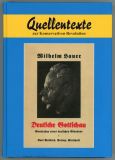 Die „Blaue Reihe“ bekommt derweil Zuwachs durch ein Werk (Jakob) Wilhelm Hauers. Hauer, der in den frühen 20er Jahren des vergangenen Jahrhunderts die Anthroposophie und damit die Grundlagen der heutigen Waldorfpädagogik
Die „Blaue Reihe“ bekommt derweil Zuwachs durch ein Werk (Jakob) Wilhelm Hauers. Hauer, der in den frühen 20er Jahren des vergangenen Jahrhunderts die Anthroposophie und damit die Grundlagen der heutigen Waldorfpädagogik 
 del.icio.us
del.icio.us
 Digg
Digg
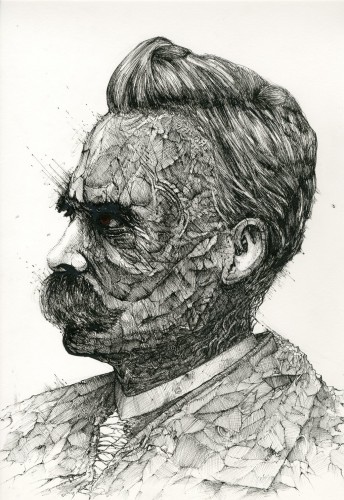
 Après quatre années passées à Paris, Moeller fait le voyage en Italie où il est fasciné par l'esthétique de la Ravenne byzantine du roi ostrogoth Théodoric, qu'il met en parallèle avec les créations des architectes allemands du "Deutscher Werkbund". Sa conscience politique allemande s'éveille progressivement quand éclate la première guerre mondiale, où il servira, vu sa santé fragile, dans les officines berlinoises chargées de contrer la propagande des alliés surtout en Flandre, aux Pays-Bas, en Scandinavie, en Suisse et dans les Pays Baltes. Contre les 14 points du Président américain Wilson, Moeller et ses co-équipiers des officines de contre-propagande élaborent une charte du "droit des peuples jeunes". La pensée de Moeller est dès lors marquée par cette volonté de rejuvénilisation permanente des discours et pratiques politiques, exactement comme Merejkovski voulait un rajeunissement de la mystique russe, comme la bohème berlinoise et munichoise -que Moeller avait fréquentée entre 1896 et 1902-
Après quatre années passées à Paris, Moeller fait le voyage en Italie où il est fasciné par l'esthétique de la Ravenne byzantine du roi ostrogoth Théodoric, qu'il met en parallèle avec les créations des architectes allemands du "Deutscher Werkbund". Sa conscience politique allemande s'éveille progressivement quand éclate la première guerre mondiale, où il servira, vu sa santé fragile, dans les officines berlinoises chargées de contrer la propagande des alliés surtout en Flandre, aux Pays-Bas, en Scandinavie, en Suisse et dans les Pays Baltes. Contre les 14 points du Président américain Wilson, Moeller et ses co-équipiers des officines de contre-propagande élaborent une charte du "droit des peuples jeunes". La pensée de Moeller est dès lors marquée par cette volonté de rejuvénilisation permanente des discours et pratiques politiques, exactement comme Merejkovski voulait un rajeunissement de la mystique russe, comme la bohème berlinoise et munichoise -que Moeller avait fréquentée entre 1896 et 1902- 
 L'année 1896 est cruciale: Moeller arrive à Berlin et amorce sa quête dans la bohème littéraire de la capitale prussienne; Karl Fischer fonde le mouvement des lycéens randonneurs, le Wandervogel, qui cherche à arracher la jeunesse aux affres d'une urbanisation effrénée; Eugen Diederichs fonde à Iéna sa maison d'édition qui véhiculera les thèmes d'un socialisme organique et enraciné, d'une religion chrétienne adaptée aux terroirs germaniques, d'une esthétique proche des pré-raphaëlites anglais et de l'art nouveau (Jugendstil), etc. Tous cherchent à asseoir une société alternative basée sur des idéaux organiques et vivants plutôt que mécaniques et figés. Après le départ de Fischer pour les armées dans la garnison allemande de Tsing-Tao en Chine, le mouvement se structure, passe de la joyeuse anarchie contestatrice à un anti-conformisme intellectuellement bien charpenté, qui jettera les bases d'une pensée écologique profonde (avec le philosophe Ludwig Klages), d'une pédagogie avant-gardiste dans le sillage de la tradition lancée, fin du 18ème, par le Suisse Pestalozzi. Laminé par la première guerre mondiale, le mouvement de jeunesse renaît vite de ses cendres tout en se politisant davantage sous le signe du nationalisme révolutionnaire qui l'opposera, à partir de 1933, à la NSDAP qui cherchait à contrôler à son profit exclusif l'ensemble des ligues. Les mouvements des Nerother et du "dj.1.11" de Tusk (alias Eberhard Koebel) sont de loin les plus originaux, ceux qui auront organisé les raids les plus exotiques et les plus audacieux (Andes, Nouvelle-Zemble, Laponie, etc.).
L'année 1896 est cruciale: Moeller arrive à Berlin et amorce sa quête dans la bohème littéraire de la capitale prussienne; Karl Fischer fonde le mouvement des lycéens randonneurs, le Wandervogel, qui cherche à arracher la jeunesse aux affres d'une urbanisation effrénée; Eugen Diederichs fonde à Iéna sa maison d'édition qui véhiculera les thèmes d'un socialisme organique et enraciné, d'une religion chrétienne adaptée aux terroirs germaniques, d'une esthétique proche des pré-raphaëlites anglais et de l'art nouveau (Jugendstil), etc. Tous cherchent à asseoir une société alternative basée sur des idéaux organiques et vivants plutôt que mécaniques et figés. Après le départ de Fischer pour les armées dans la garnison allemande de Tsing-Tao en Chine, le mouvement se structure, passe de la joyeuse anarchie contestatrice à un anti-conformisme intellectuellement bien charpenté, qui jettera les bases d'une pensée écologique profonde (avec le philosophe Ludwig Klages), d'une pédagogie avant-gardiste dans le sillage de la tradition lancée, fin du 18ème, par le Suisse Pestalozzi. Laminé par la première guerre mondiale, le mouvement de jeunesse renaît vite de ses cendres tout en se politisant davantage sous le signe du nationalisme révolutionnaire qui l'opposera, à partir de 1933, à la NSDAP qui cherchait à contrôler à son profit exclusif l'ensemble des ligues. Les mouvements des Nerother et du "dj.1.11" de Tusk (alias Eberhard Koebel) sont de loin les plus originaux, ceux qui auront organisé les raids les plus exotiques et les plus audacieux (Andes, Nouvelle-Zemble, Laponie, etc.). 






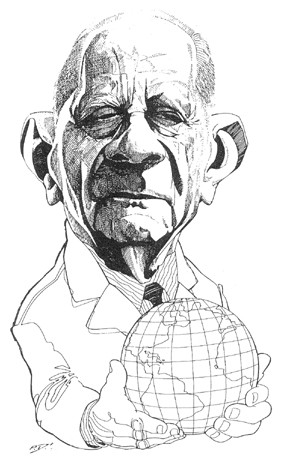 Carl Schmitt’s two essays on “The Tyranny of Values” (
Carl Schmitt’s two essays on “The Tyranny of Values” (
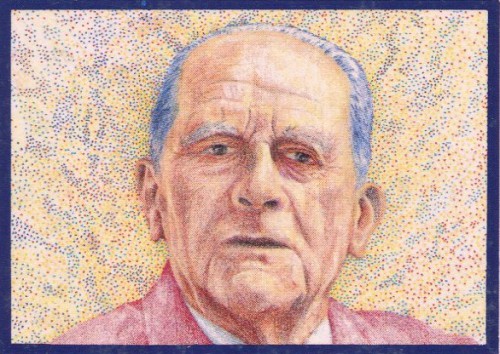
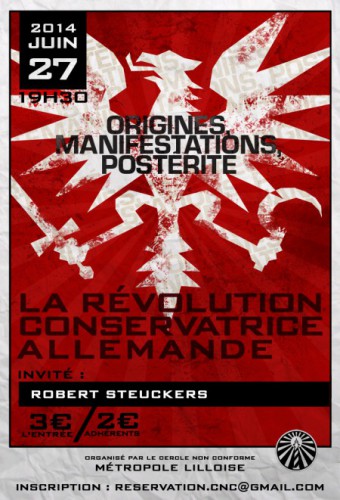
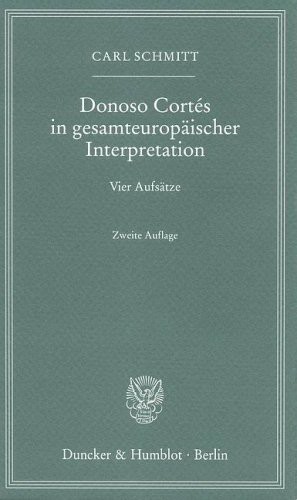 Cuando en Interpretación europea de Donoso Cortés, Carl Schmitt nos describe el pensamiento del político y diplomático español como un pensamiento de carácter “europeo”, nos muestra algo inédito dentro del llamado “pensamiento reaccionario”.
Cuando en Interpretación europea de Donoso Cortés, Carl Schmitt nos describe el pensamiento del político y diplomático español como un pensamiento de carácter “europeo”, nos muestra algo inédito dentro del llamado “pensamiento reaccionario”.

 La aventura de Jünger cobra el símbolo de una organicidad rotunda enla relación social del intelectual con la producción de una clase concreta; se trata fundamentalmente de una personalidad que de alguna manera expresa Drieu la Rochelle: ”(es) el hombre de mano comunista, el hombre de las ciudades, neurasténico, excitado por el ejemplo de los fascios italianos, así como por el de los mercenarios de las guerras chinas, de los soldados de la Legión Extranjera” (8). Se verdadera patria son las llamas, la tensión del combate, la experiencia de la guerra. Su conformación íntima se encuentra manifestada en otro de aquellos que vivieron ”la encarnación de una civilización en sus últimas etapas de decadencia y disolución”, así dice Ernst Von Salomon en Los proscritos: ”sufríamos al sentir que en medio del torbellino y pese a todos los acontecimientos, las fatalidades, la verdad y la realidad siempre estaban ausentes” (9). Es este el territorio en que Jünger preparará la red invisible de su obra, recogiendo las brasas, los escombros, las banderas rotas. Cuando todo en Alemania se tambalea: se cimbran los valores humanitarios y cristianos, la burguesía se declara en bancarrota y los espartaquistas establecen la efímera República de Münich, aparecen los elementos vitales de su escritura, que atesorará como una trinchera imbatible heredera del limo, con la llave precisa que abrirá las puertas de la putrefacción a la literatura.
La aventura de Jünger cobra el símbolo de una organicidad rotunda enla relación social del intelectual con la producción de una clase concreta; se trata fundamentalmente de una personalidad que de alguna manera expresa Drieu la Rochelle: ”(es) el hombre de mano comunista, el hombre de las ciudades, neurasténico, excitado por el ejemplo de los fascios italianos, así como por el de los mercenarios de las guerras chinas, de los soldados de la Legión Extranjera” (8). Se verdadera patria son las llamas, la tensión del combate, la experiencia de la guerra. Su conformación íntima se encuentra manifestada en otro de aquellos que vivieron ”la encarnación de una civilización en sus últimas etapas de decadencia y disolución”, así dice Ernst Von Salomon en Los proscritos: ”sufríamos al sentir que en medio del torbellino y pese a todos los acontecimientos, las fatalidades, la verdad y la realidad siempre estaban ausentes” (9). Es este el territorio en que Jünger preparará la red invisible de su obra, recogiendo las brasas, los escombros, las banderas rotas. Cuando todo en Alemania se tambalea: se cimbran los valores humanitarios y cristianos, la burguesía se declara en bancarrota y los espartaquistas establecen la efímera República de Münich, aparecen los elementos vitales de su escritura, que atesorará como una trinchera imbatible heredera del limo, con la llave precisa que abrirá las puertas de la putrefacción a la literatura.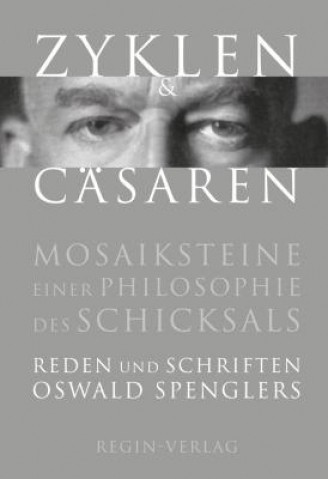
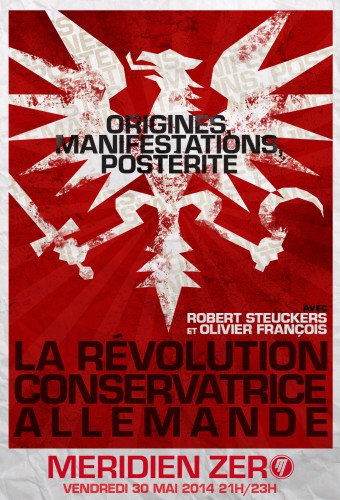
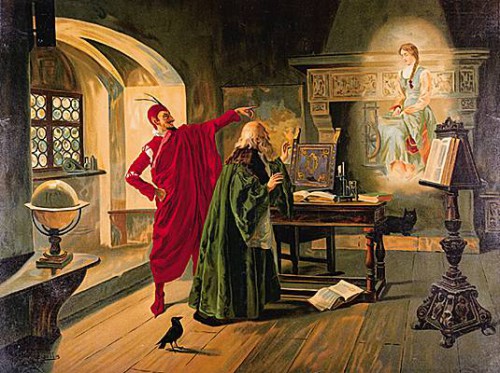
 The unique characteristics of Faustian civilization, as Spengler described it, are now leading Europe to destruction. The Faustian is characterized by a drive towards the infinite, a will to break through the boundaries that limit man, whether they be intellectual or physical. Spengler calls the prime symbol of the Faustian soul “limitless space.”[1] Like Goethe’s Faust, Faustian civilization seeks infinite knowledge.
The unique characteristics of Faustian civilization, as Spengler described it, are now leading Europe to destruction. The Faustian is characterized by a drive towards the infinite, a will to break through the boundaries that limit man, whether they be intellectual or physical. Spengler calls the prime symbol of the Faustian soul “limitless space.”[1] Like Goethe’s Faust, Faustian civilization seeks infinite knowledge.
 Related to the Faustian tendency towards abstraction is the technical sophistication of Faustian civilization. Inventions spring from the unbounded Faustian mind. From the tools of abstract mathematics Faustian man has constructed the most precise and powerful theories of physical forces known to man. The combination of unlimited thought and dynamism enabled never before seen technological breakthroughs.
Related to the Faustian tendency towards abstraction is the technical sophistication of Faustian civilization. Inventions spring from the unbounded Faustian mind. From the tools of abstract mathematics Faustian man has constructed the most precise and powerful theories of physical forces known to man. The combination of unlimited thought and dynamism enabled never before seen technological breakthroughs.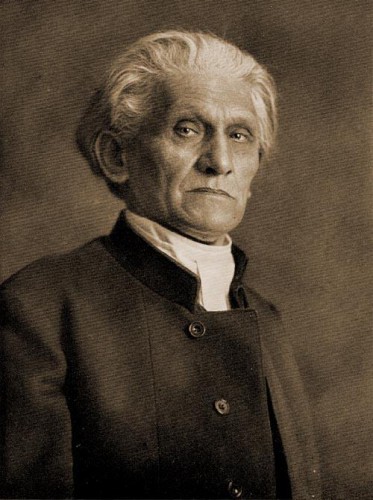
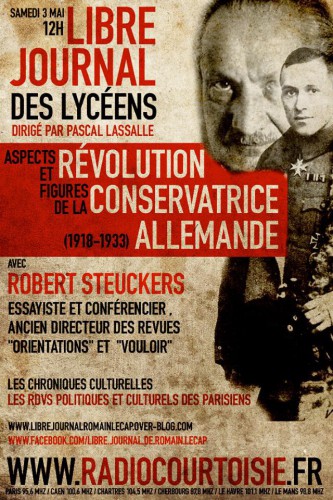
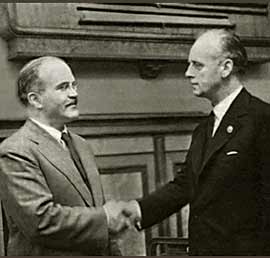 I Tedeschi e i Russi sono i due grandi popoli dell’Europa Continentale che nel corso del Novecento si sono scontrati non una, ma due volte, nel corso di guerre sanguinose, che hanno compromesso l’equilibrio del Vecchio Continente.
I Tedeschi e i Russi sono i due grandi popoli dell’Europa Continentale che nel corso del Novecento si sono scontrati non una, ma due volte, nel corso di guerre sanguinose, che hanno compromesso l’equilibrio del Vecchio Continente.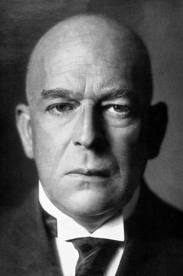
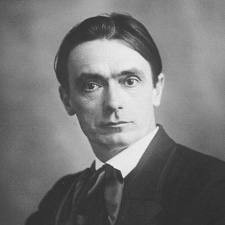
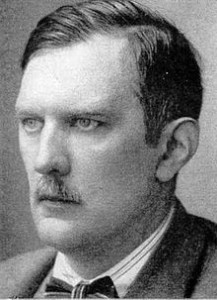





 Après la première guerre mondiale, la plupart des paysans allemands affrontaient d’énormes difficultés économiques. Afin de pouvoir vaille que vaille fournir en vivres la population, l’agriculture allemande, au début de la République de Weimar et jusqu’en 1922, avait été contrainte d’accepter de gré ou de force une politique dirigée, contraignante. Cette politique avait suscité un rejet général de la jeune République dans de larges strates de la paysannerie qui votait traditionnellement pour les formations conservatrices ou libérales.
Après la première guerre mondiale, la plupart des paysans allemands affrontaient d’énormes difficultés économiques. Afin de pouvoir vaille que vaille fournir en vivres la population, l’agriculture allemande, au début de la République de Weimar et jusqu’en 1922, avait été contrainte d’accepter de gré ou de force une politique dirigée, contraignante. Cette politique avait suscité un rejet général de la jeune République dans de larges strates de la paysannerie qui votait traditionnellement pour les formations conservatrices ou libérales. 
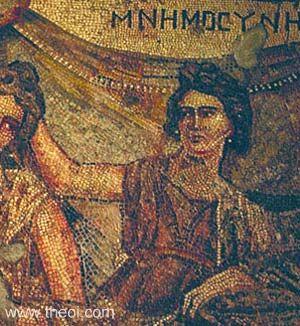
Ernst Jünger: yo soy la acción
por José Luis Ontiveros
Ex: http://culturatransversal.wordpress.com
En torno a la obra del escritor alemán Ernst Jünger se ha producido una polémica semejante a la que preocupó a los teólogos españoles en relación con la existencia del alma de los indios. De alguna manera, el hecho de que se le haya discutido en medios intelectuales mundiales con asiduidad, y el que una nueva política literaria tienda a revalorizarlo, le otorga, como lo hizo a los naturales el Papa Paulo III, la posibilidad de una lectura conversa; ya no traumatizada por su historia maldita, absolutoria de su derecho a la diferencia, y exoneradora de un pasado marcado por la gloria y la inmundicia.